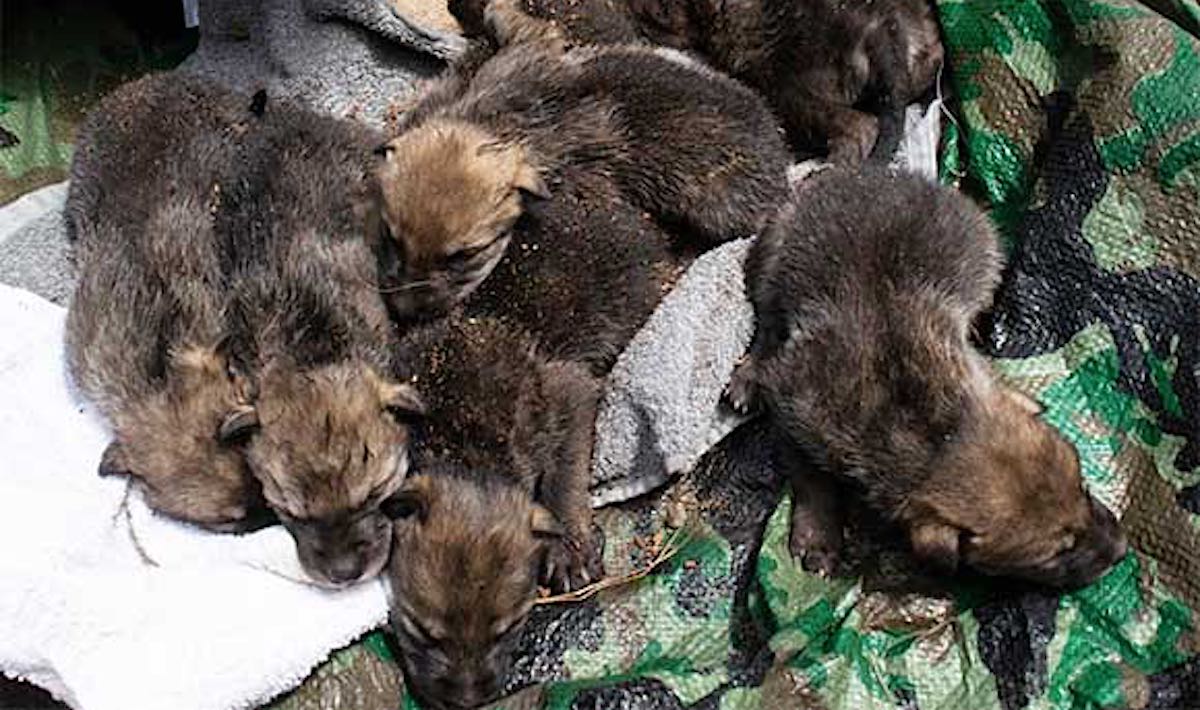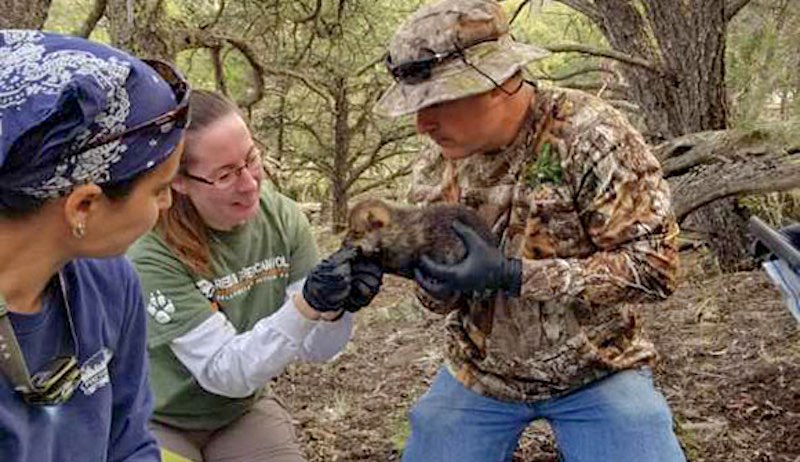 |
| Mexican wolf pups |
Recovery efforts for the
Mexican wolf have recently been given a significant upgrade this spring with the birth of twenty pups in captivity, who were successfully joined with wolf packs in the wilds across the
American Southwest. The twenty pups came from seven different litters in
captive breeding programs in zoos and wolf centers in
Arizona,
California,
Kansas,
Missouri, and
New Mexico. They were provided to seven wild packs in Arizona and New Mexico. This ingenious program is operated by the
Arizona Game and Fish Department with large-scale support from the
U.S Fish and Wildlife Service. This method, known as
cross-fostering, has proven to be successful in the reintroduction efforts of Mexican wolves in which cubs are taken at 14 weeks of age and placed in wild wolf dens containing pups of the same age. Studies have indicated that cross-fostered wolf pups have the same survival rate as the ones born in the wild throughout their first year of life. According to Jim deVos, assistant director at Arizona Game and Fish Department, cross-fostering wolf pups helps increase the genetic diversity. Therefore, cross-fostering promises the highest rate of survival of any
wolf-reintroduction methods. The Mexican Wolf Interagency Field Team (IFT) began cross-fostering wolves in 2014 with only two pups. Since then, thirty captive-born pups were taken to the wild to be fostered in dens--and, about ten cross-fostered wolves have survived and been raised into wild wolf packs.
 |
| Members of the IFT with a Mexican wolf pup |
I find this news to be very special because it relates to the one on which I made a
blog post two years ago. In that post, I talked about what cross-fostering is and how it is being utilized in the conservation of Mexican wolves. I was initially unsure whether the cross-fostering technique would be successful and how, but according to this news, it has proven to be successful. A census conducted in 2019 recorded 163 wild wolves (76 in Arizona and 87 in New Mexico); an increase from 131 animals counted the year before. I'm confident that cross-fostering will be beneficial in the Mexican wolf conservation and will help bolster the numbers in the American Southwest. I think this method should also be utilized in the conservation of
red wolves on a trial basis and see how it turns out. In the meantime, the future for Mexican wolves in the U.S appears bright.


No comments:
Post a Comment